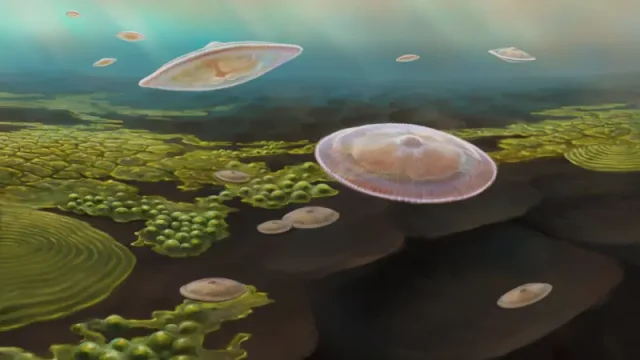A team of scientists claims to have found evidence suggesting that Complex Life On Earth might have originated 1.5 billion years earlier than previously thought. Working in Gabon, they discovered signs of environmental conditions favorable for animal life 2.1 billion years ago within ancient rocks. However, these early organisms were confined to an inland sea, did not spread globally, and eventually vanished.
This theory challenges conventional views, which generally place the start of animal life around 635 million years ago. The study also contributes to ongoing debates about the nature of unexplained formations found in Franceville, Gabon, which some speculate could be fossils.
Read more: Scientists Now Claim More Evidence for Venus’ Life Sign
Professor Ernest Chi Fru from Cardiff University, part of the international research team, suggested that if correct, these early life forms might have resembled slime molds. However, Professor Graham Shields from University College London expressed skepticism, questioning whether the evidence is sufficient to support the idea of complex life development at that time.
Chi Fru believes his findings support the notion that similar processes led to the emergence of complex life, echoing events from the Cambrian period 635 million years ago, and enhancing our understanding of life’s origins on Earth.

About a decade ago, the discovery of the Francevillian formation suggested that complex life might have begun earlier than previously believed. Professor Chi Fru and his team proposed that this formation, which they interpreted as containing fossils of life forms capable of movement, indicated the existence of early complex organisms. However, this interpretation faced skepticism from the scientific community.
To support their hypothesis, Professor Chi Fru and his colleagues analyzed sediment cores from Gabon. Their findings revealed that the rock chemistry suggested a “laboratory” for life was created just before the Francevillian formation. They propose that high oxygen and phosphorus levels resulted from underwater volcanic activity caused by colliding continental plates. This activity isolated a section of water from the ocean, forming a nutrient-rich inland sea.
According to Professor Chi Fru, this protected environment facilitated photosynthesis, increasing oxygen levels and promoting larger and more complex primitive life forms. However, the isolation eventually led to their extinction due to a lack of new nutrients.
PhD student Elias Rugen from the Natural History Museum, who was not involved in the study, acknowledged that while the evidence suggests unusual changes in Earth’s biogeochemical cycles, further research is needed to fully support the idea of complex life existing 2 billion years ago.









